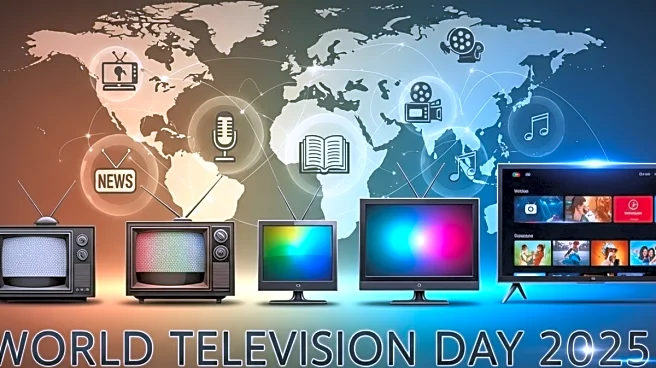World Television Day 2025: Television, while facing competition from newer online platforms like Over-the-Top (OTT) services, continues to hold a significant place in people’s lives. Due to its accessibility, ability to deliver impactful content to a large audience, and the unique power of combined audio and visual storytelling, this electronic medium remained a preferred medium for entertainment, education, and news consumption.
To recognise the role it plays in informing, educating, and entertaining the masses, World Television Day is observed on November 21 every year. It was invented by a Scottish engineer, John Logie Baird, in 1924.
The early days of television were limited to black and white broadcasts, with few channels and restricted programming
schedules. This changed with the introduction of colour television in the 1950s, followed by technological advancements like cable and satellite in the 1980s and then digital and smart TVs in the 1990s and 2000s, which provided vastly more choice, better quality, and internet-based streaming.
World Television Day: History
World Television Day is celebrated on November 21 to recognise the role television plays in informing, educating, and entertaining the public. The day’s history dates back to the first World Television Forum in 1996, when the United Nations General Assembly proclaimed 21 November as World Television Day (through resolution 51/205 of 17 December 1996).
On November 21 and 22, 1996, the United Nations hosted the first World Television Forum, in which top media figures gathered under the United Nations’ auspices to examine the growing importance of TV in today’s changing world and to determine how they may improve their mutual cooperation.
World Television Day 2025: Significance
World Television Day is a day to acknowledge the significant role television plays in our lives by highlighting its ability to connect people globally, educate, inform, and promote positive change across cultures and borders. It remains a powerful medium for social change by informing the public about critical issues and raising awareness about social challenges.
World Television Day 2025: Future Of TV
In the digital age, television content production is pushing boundaries through the integration of technologies such as virtual reality (VR), augmented reality (AR), and artificial intelligence (AI).
The focus is shifting towards superior picture quality and innovative form factors. Key display technologies include further advancements in OLED and the rise of MicroLED, which offers better brightness and longevity.
Future TVs will not only entertain and inform but will also connect, proactively assist, inspire, and contribute to healthier, more meaningful lives by using the power of artificial intelligence and putting user experience first.
They will recover their role as the heart of the home, serving as both a screen and a shared experience.
In short, the future of television points to a highly personalised, interactive, and AI-driven ecosystem in which the viewing experience goes far beyond a traditional, passive screen and becomes an integrated element of daily living and home management.


/images/ppid_a911dc6a-image-177092242742141963.webp)








/images/ppid_a911dc6a-image-177092306157991736.webp)






